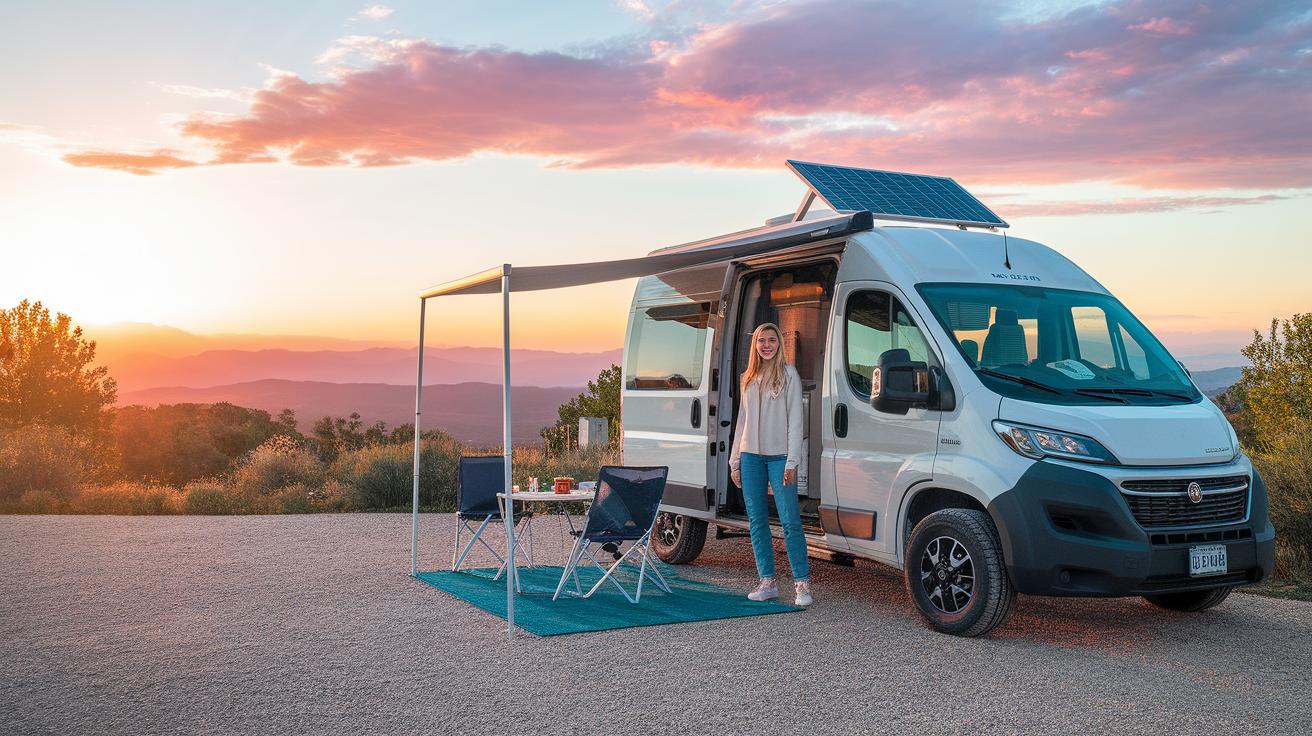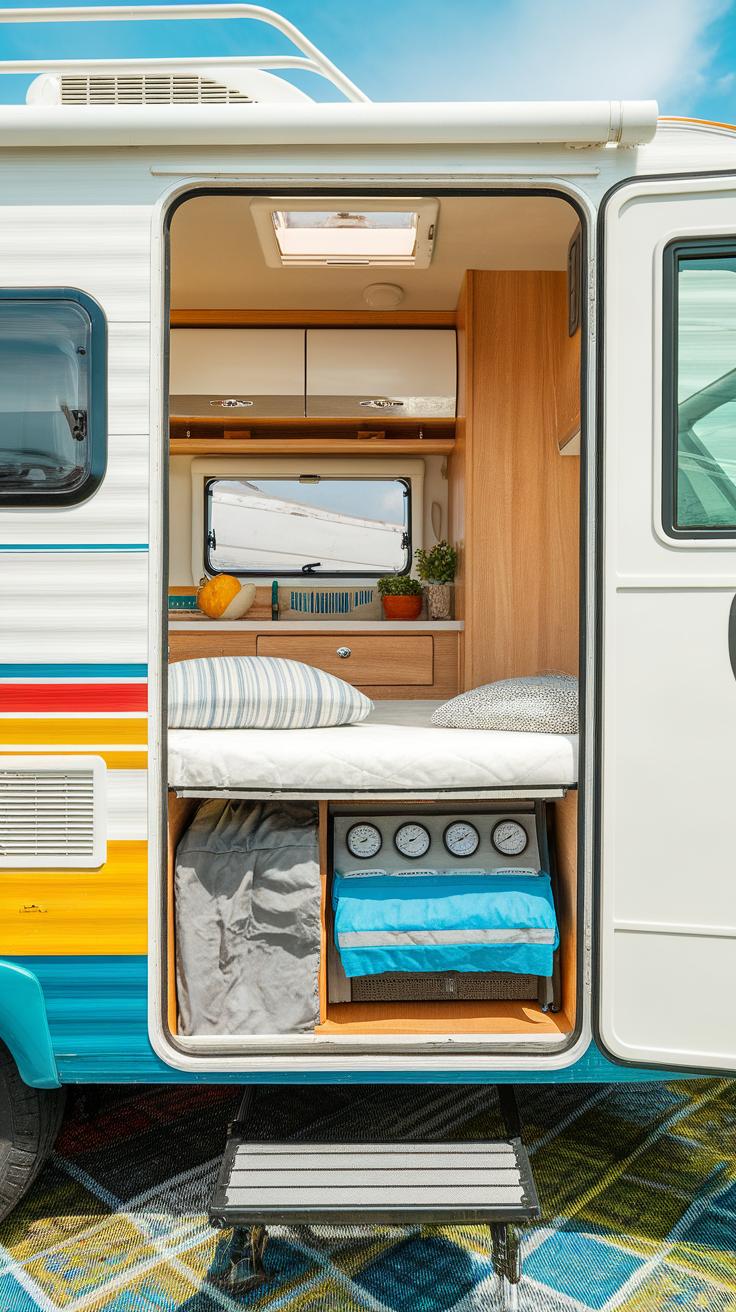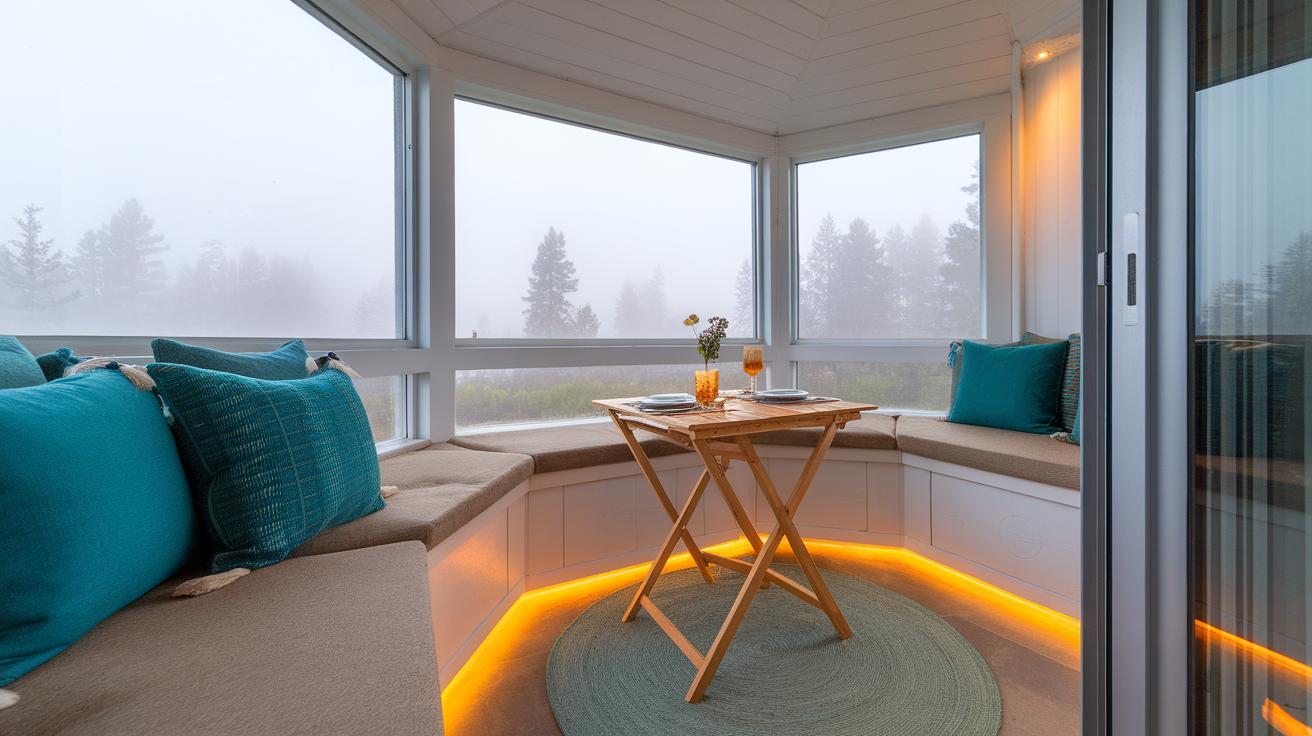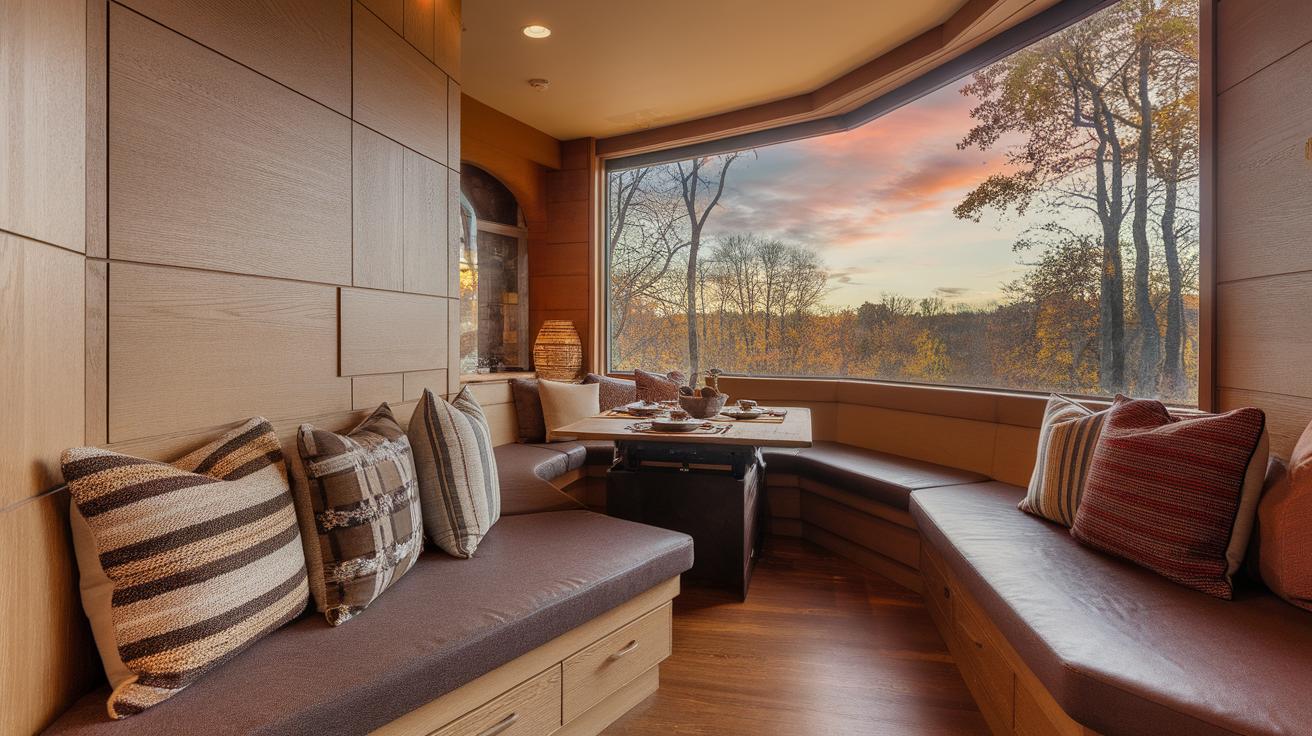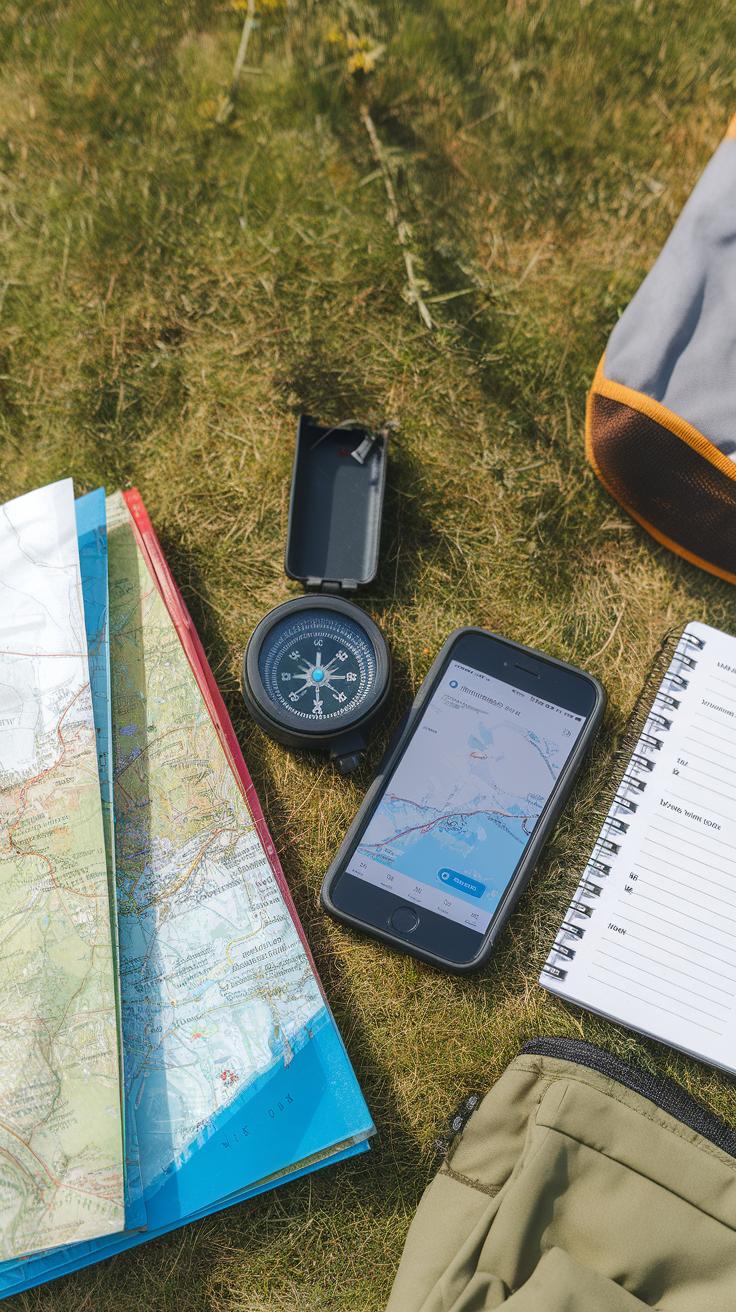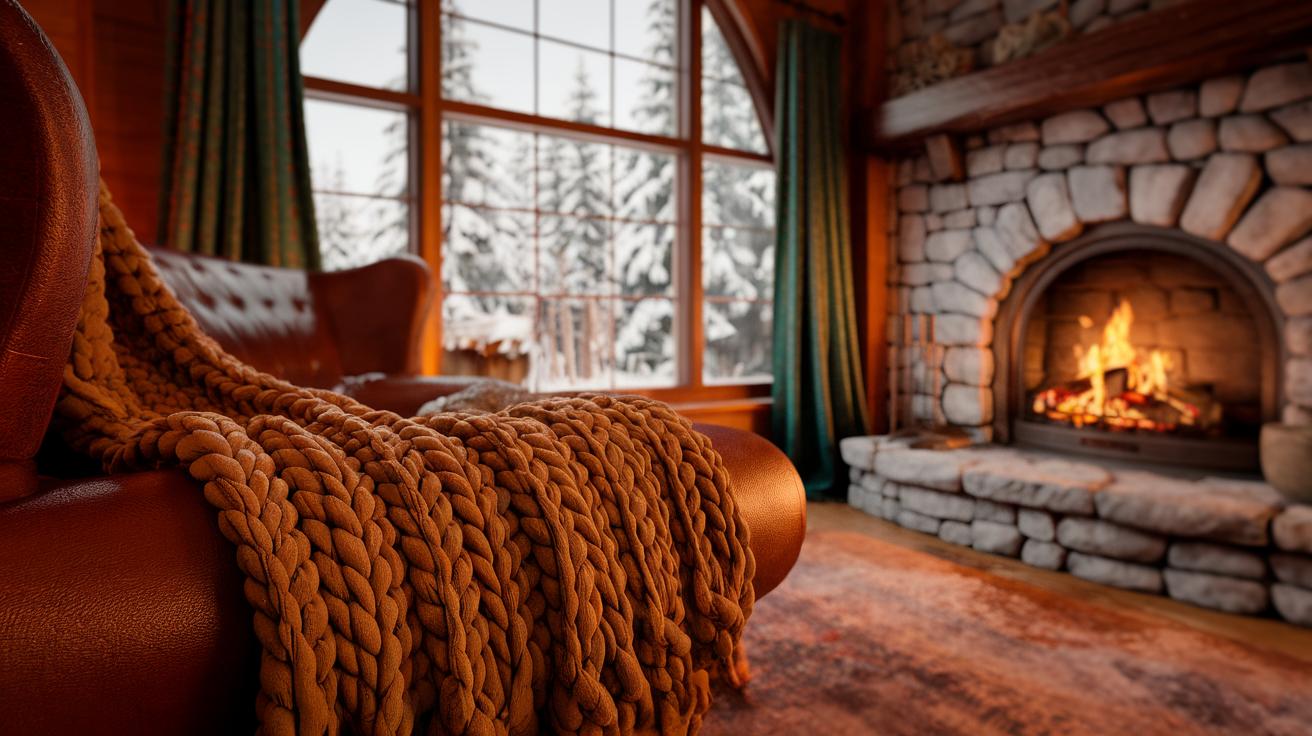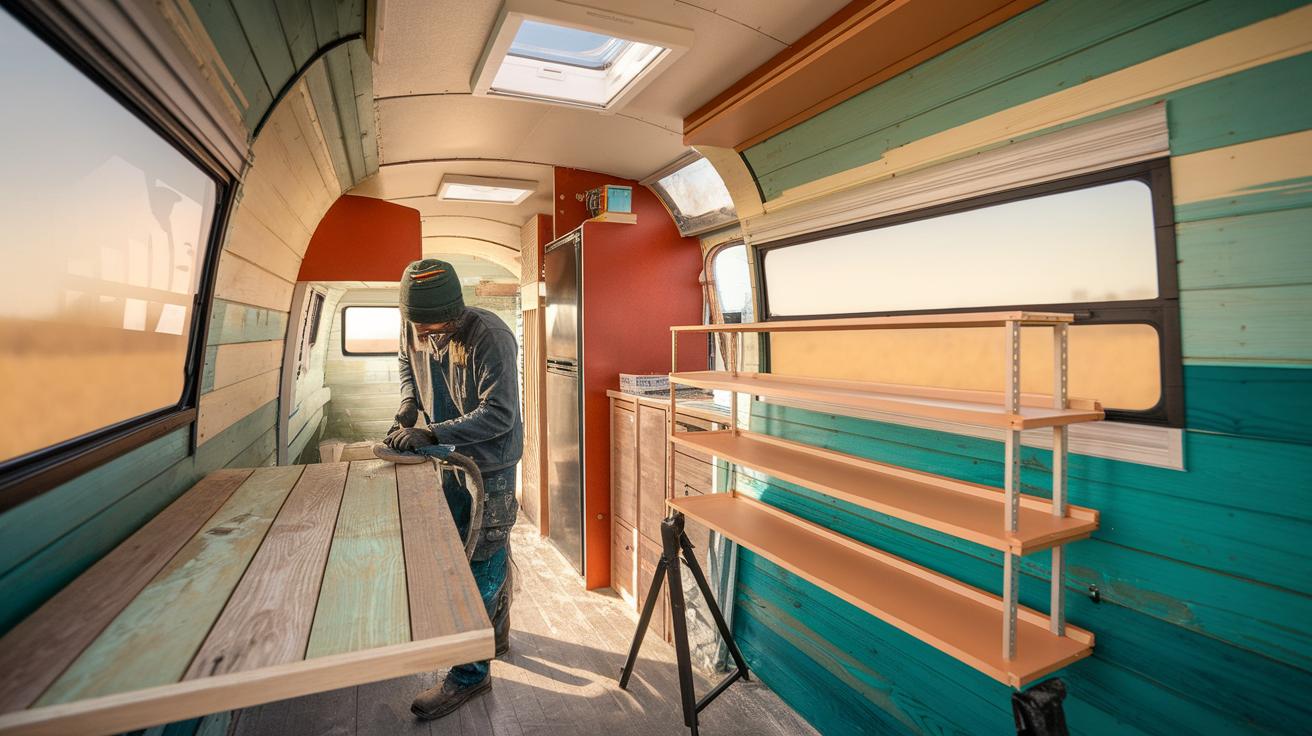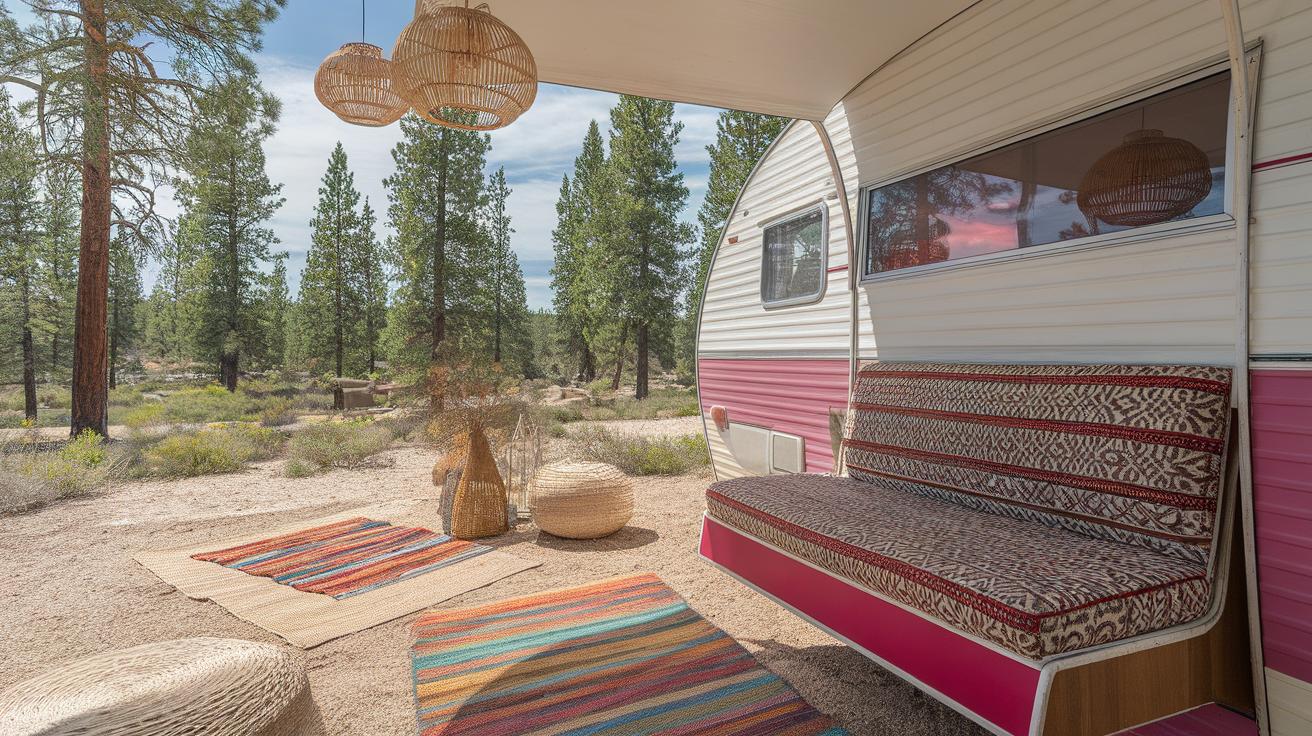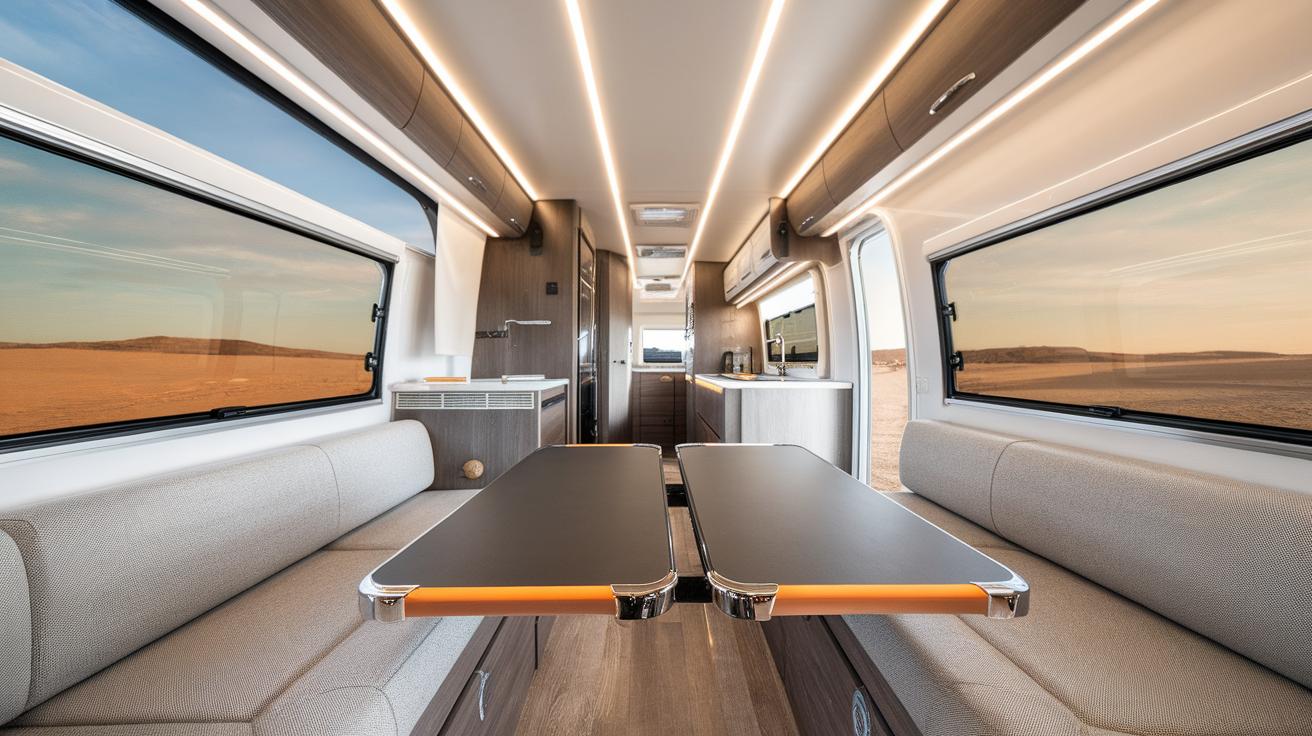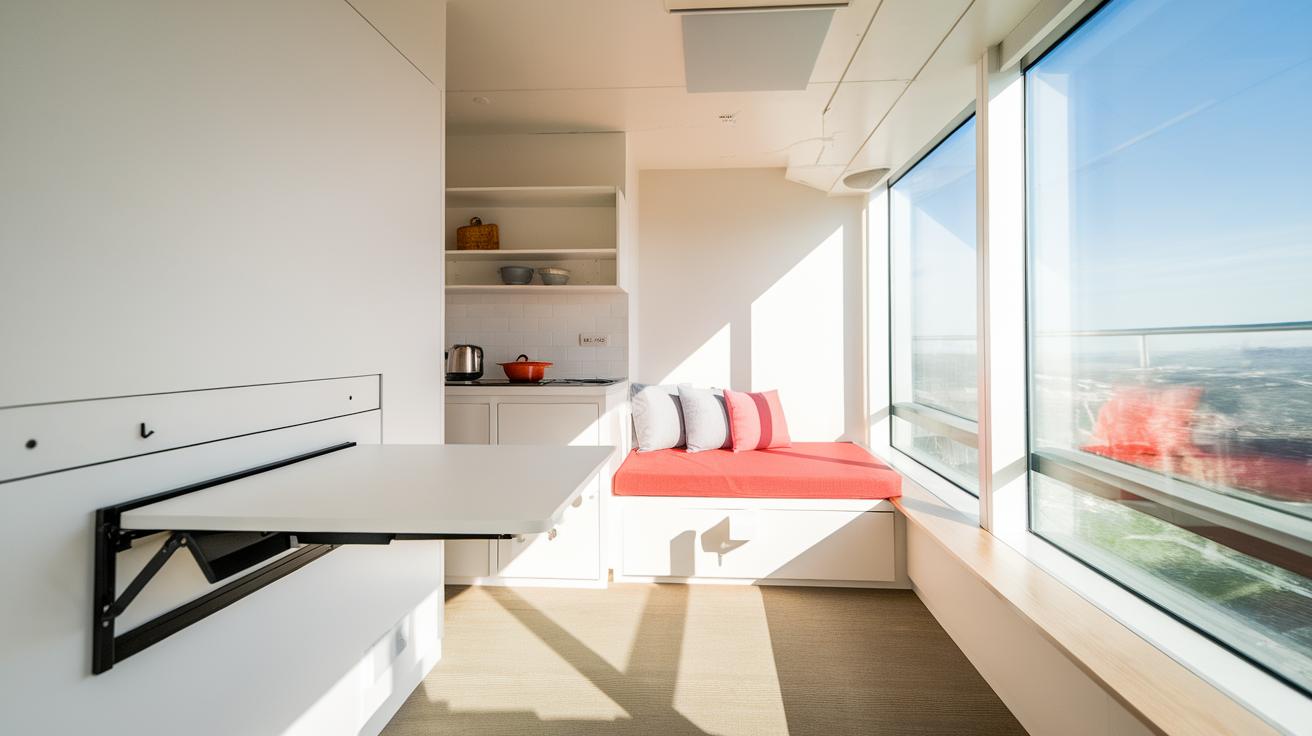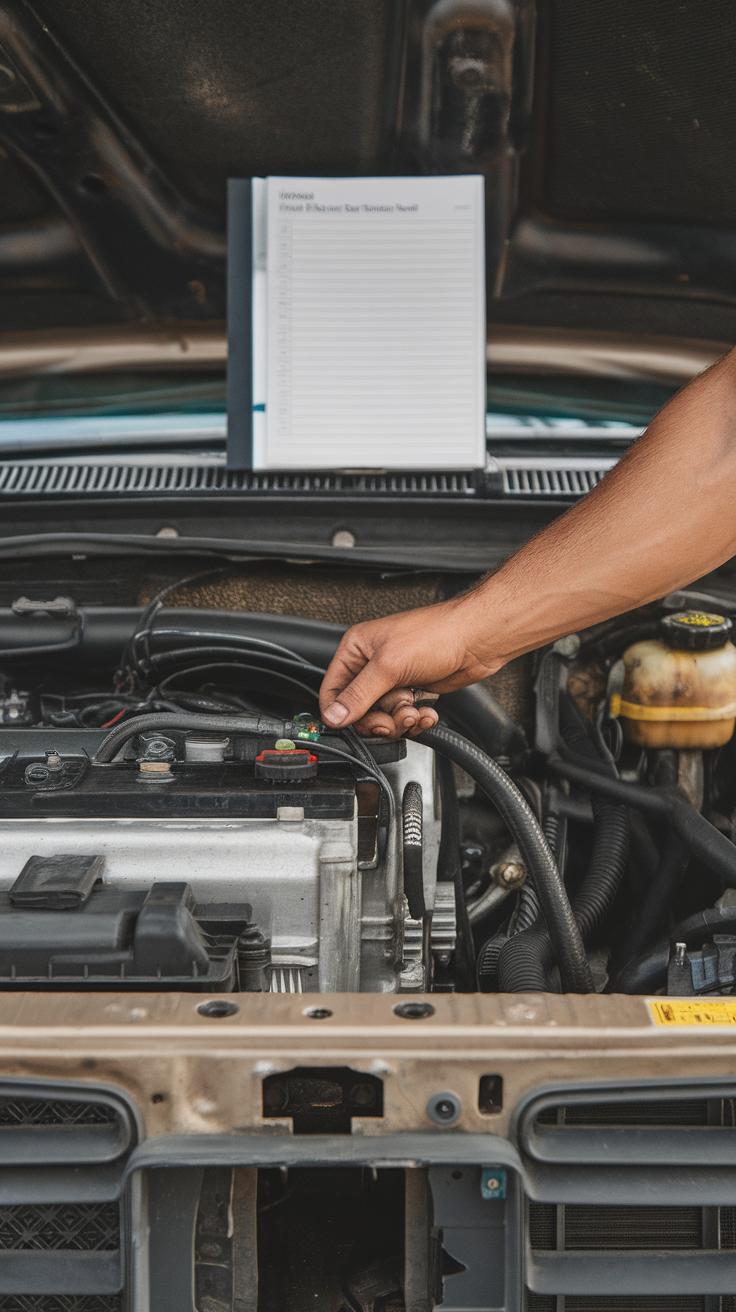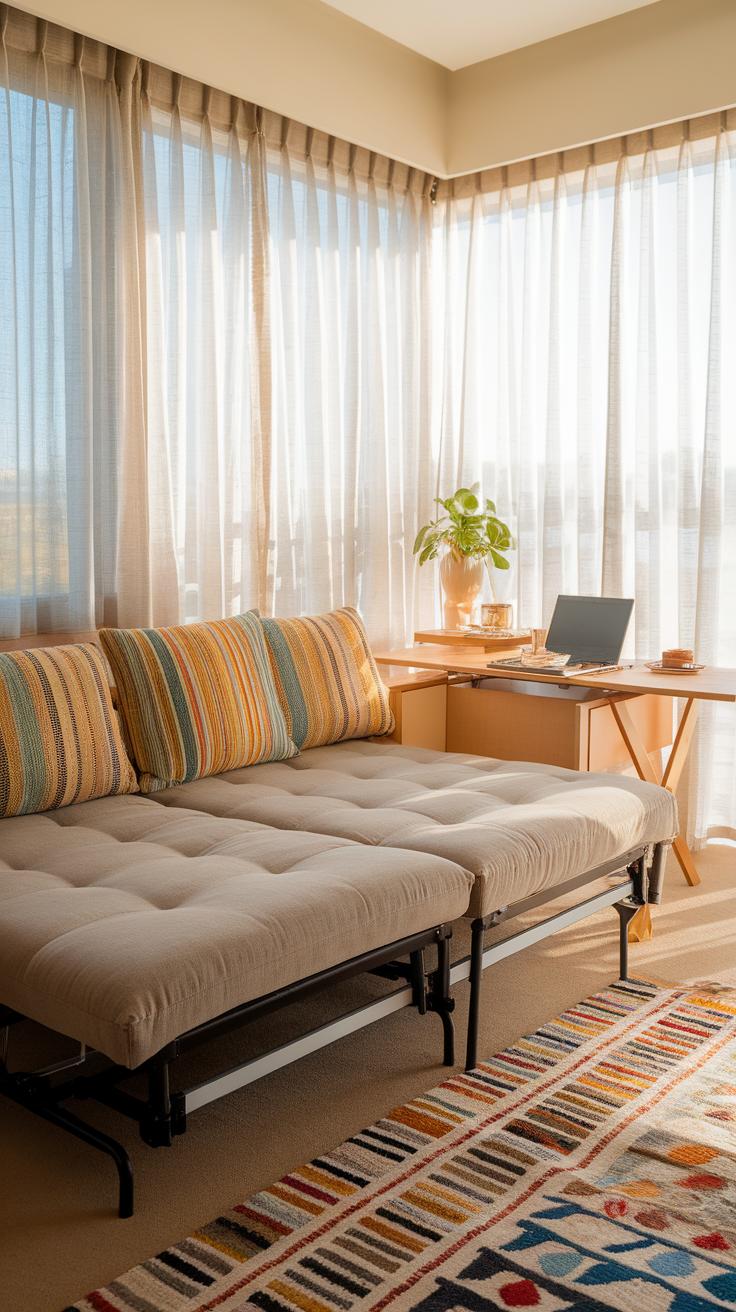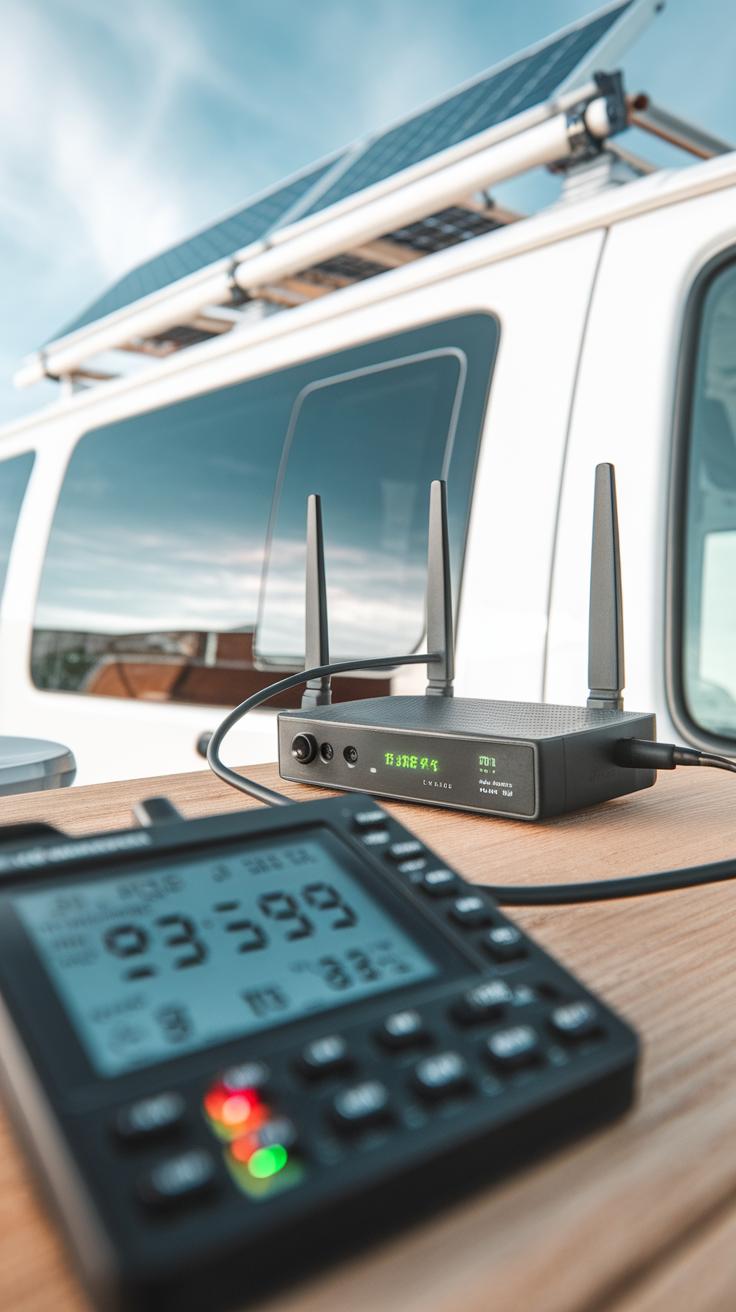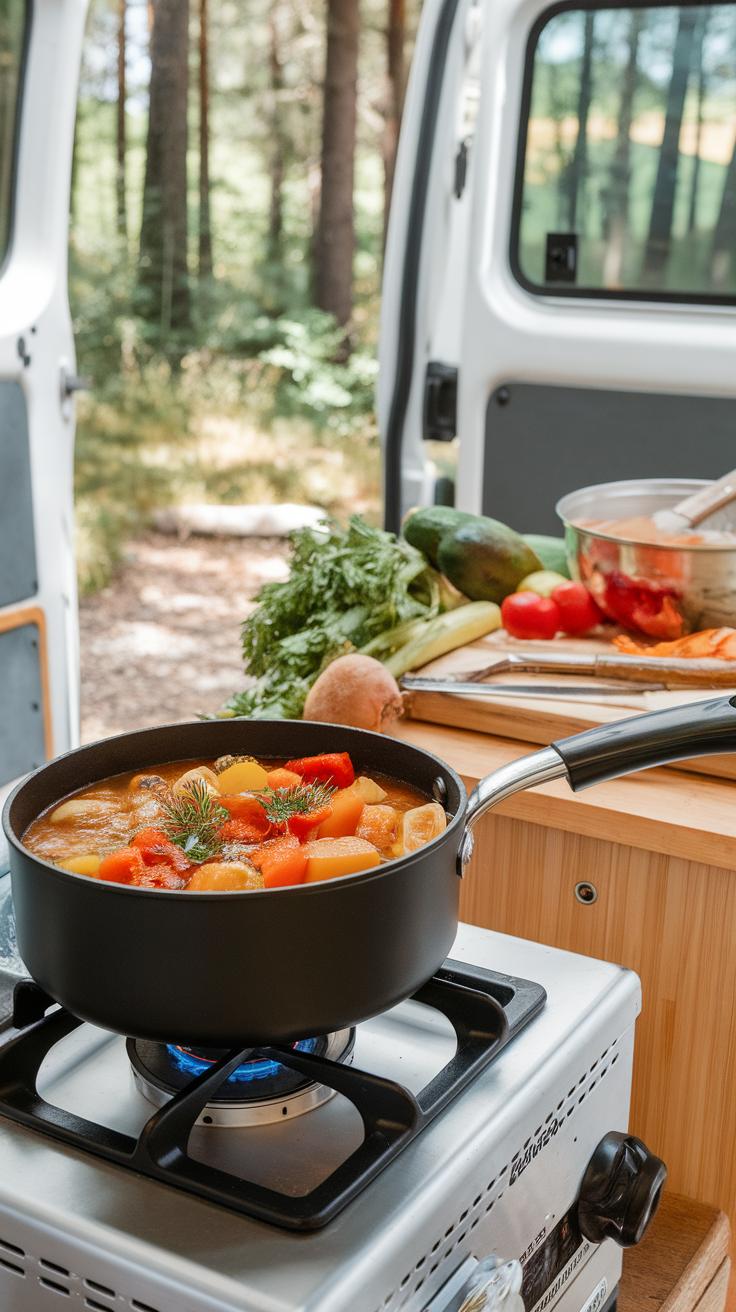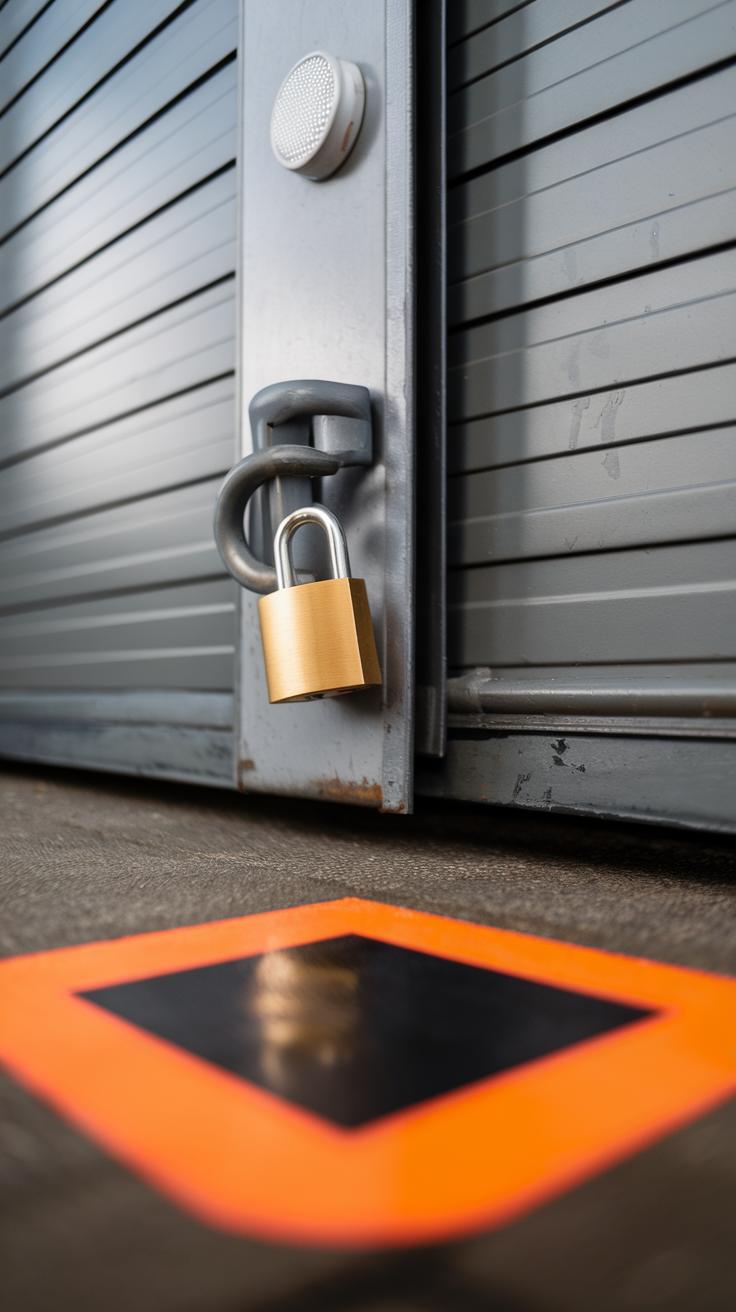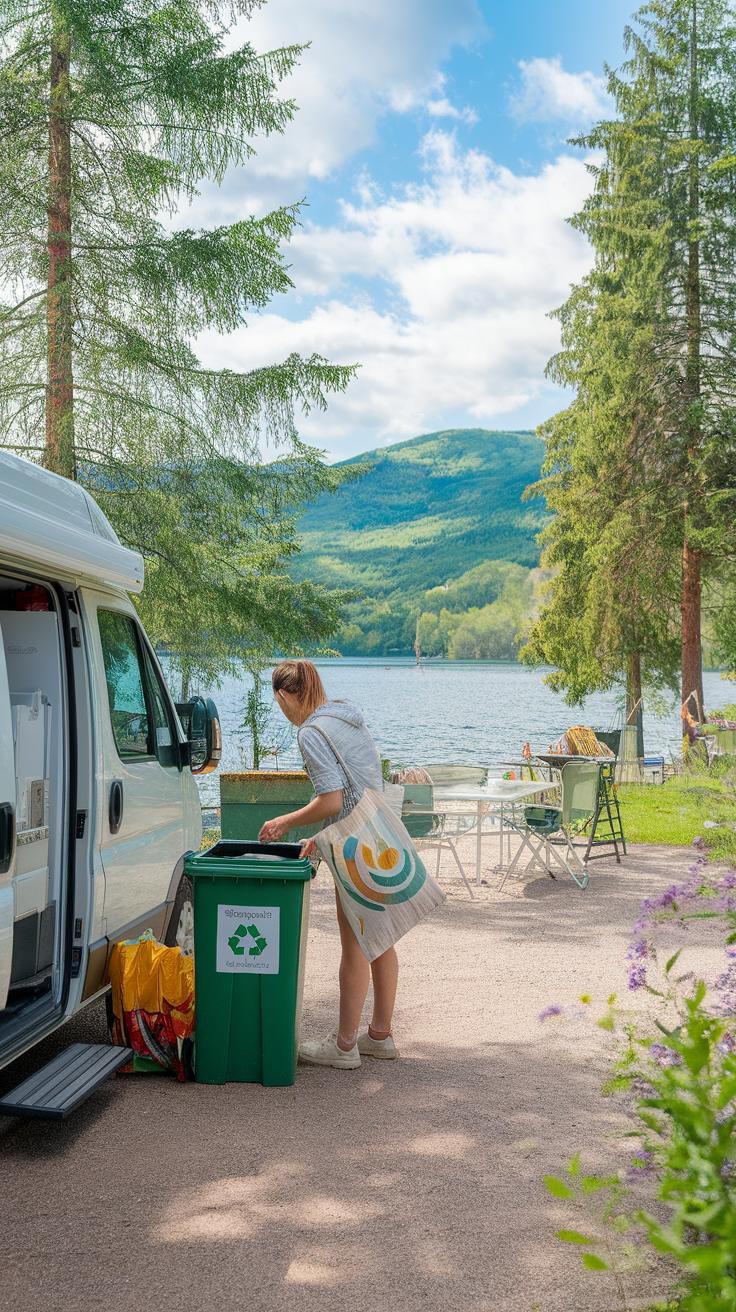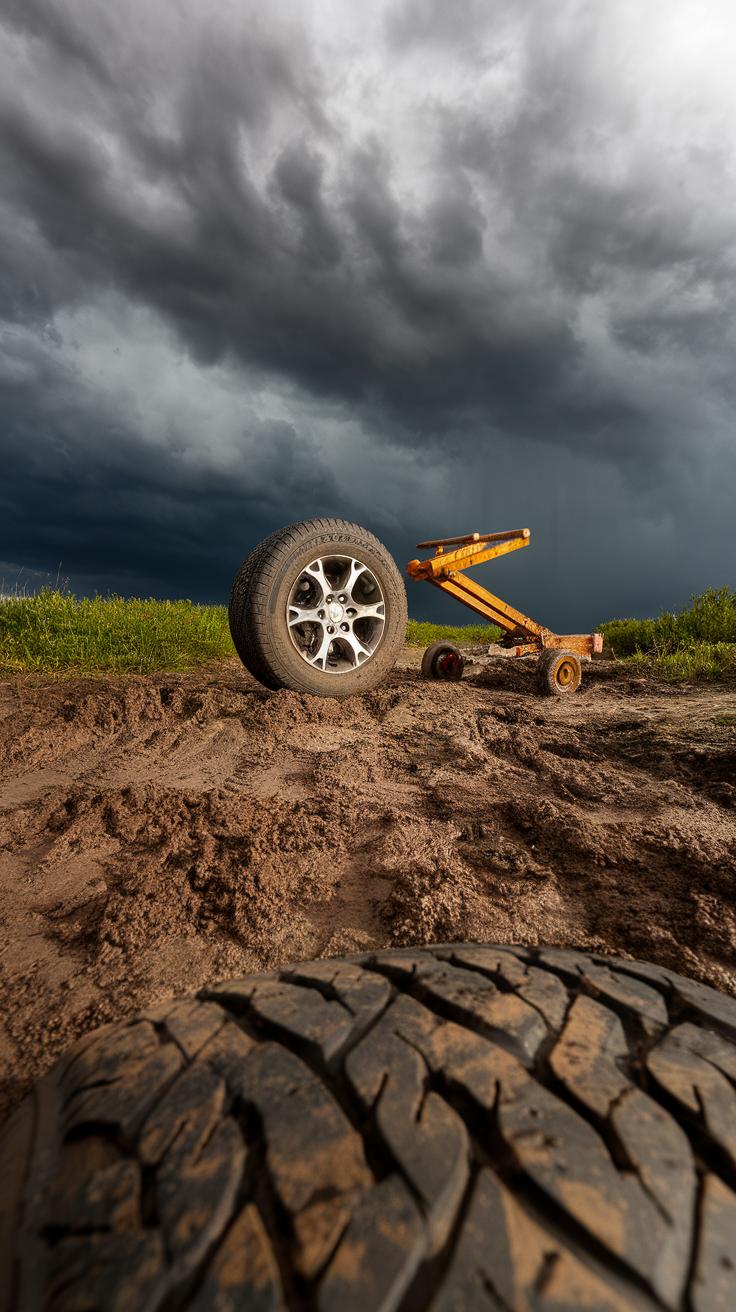Introduction
Campervan life offers a unique way to travel while having the comfort of your own space on wheels. Understanding the essentials helps you make the most of this lifestyle. You get to combine transportation with accommodation, which lets you explore new places flexibly. A campervan is more than just a vehicle; it’s your home on the road. Knowing its features and how to use them effectively is the first step to a successful campervan experience. This lifestyle suits those who seek adventure, mobility, and simplicity in travel.
Choosing campervan life means adapting to life in a compact space. It involves organizing your essentials, managing power and water, and planning routes wisely. Whether you convert your van yourself or buy a ready-made one, knowing how to maintain and use it is critical. You will face decisions about where to park legally and how to stay comfortable in different climates. This article focuses on practical tips to help you embrace campervan life confidently and responsibly.
Understanding Your Campervan
Your campervan serves as both your vehicle and living space. Unlike larger motorhomes, campervans often start as vans converted to include living essentials. Motorhomes tend to be built from the ground up for camping, offering more space but less maneuverability. What suits your lifestyle better: a compact van or a roomy motorhome?
Most campervans include a sleeping area, often foldable or convertible from seating. Kitchens usually feature a small stove, sink, and sometimes a fridge. Power comes from batteries charged via the engine, solar panels, or external hookups. Knowing how your power system works helps avoid surprises during your travels.
These setups balance comfort and freedom, letting you park and stay nearly anywhere. How do you plan to use your campervan? Short weekend trips or long-term road living change what features matter most.
Campervan Structure And Function
The layout inside a campervan centers on efficient use of limited space. The sleeping area often folds out from seats or fits under a pop-up roof. Pop-up roofs create extra headroom and sometimes an additional sleeping spot. Do you prefer standing space or more beds?
The kitchen area is compact, usually including a two-burner stove, a small sink with a water tank, and storage for utensils and food. Storing gear is key; under-seat compartments or overhead cabinets help keep things organized and easy to reach.
Lighting often runs on dual-voltage systems, working off both 12V battery power and 110/220V when hooked to external electricity. This gives flexibility whether you’re off-grid or at a campground.
Types Of Campervans
Small campervans are agile and ideal for city driving or tight spots. Larger, more elaborate campervans offer more living space and amenities but can be harder to park.
Off-road campervans come with rugged tires and raised suspensions to handle rough terrain. These let you reach remote spots but usually cost more and consume more fuel. Is access or comfort your priority?
DIY conversions let you customize everything but require time and skill. Buying a ready-made campervan saves effort but may limit personalization. What matters more: your budget or creating a unique space?
Planning Your Campervan Trips
Planning your campervan trips begins with choosing routes that suit your driving style and van size. Consider road conditions and weather to avoid unexpected challenges. Using apps or maps to mark rest stops and fuel stations helps prevent getting stranded. Planning breaks every few hours keeps you alert and relaxed behind the wheel.
Research camping spots ahead of time. Look for sites offering the facilities you need, like water access or waste disposal. Some places require reservations, so booking early prevents last-minute hassles. Always check if overnight parking is allowed where you plan to stay.
Respect the environment by sticking to marked paths and campsites. Avoid areas prone to damage or overcrowding. Leaving no trace means packing out your trash and minimizing your impact. What steps can you take to keep nature clean and safe during your travels?
Choosing Destinations
Select destinations that fit your interests and campervan capabilities. Think about accessibility: can your van handle narrow or steep roads? Choose places with easy entry and exit points to avoid tight spots.
Convenience matters too. Nearby stores and services save time and effort during your trip. Look for attractions like parks, hiking trails, or cultural sites that match your preferences. Visiting lesser-known areas often offers peace and unique experiences.
Ask yourself where you want to relax and what activities you enjoy. Do you prefer bustling towns or quiet nature reserves? Your choice impacts the kind of campervan lifestyle you’ll experience on the road.
Legal Considerations For Parking
Understanding local laws about parking and camping in your campervan protects you from fines and trouble. Not all areas allow overnight stays in vehicles, so check official signage or council websites before stopping.
Some regions require permits or limit the number of nights you can park. Failing to comply can lead to penalties or forced moves. Use apps and online forums to find places with legal and safe parking options.
Think about safety when choosing parking spots. Well-lit areas near populated locations offer security, while remote spots may pose risks. How can you balance legality and safety in your overnight stops?
Packing Essentials Smartly Advice on packing light and functional for campervan life
Packing for campervan life means balancing comfort with limited space.
Focus on items that serve multiple purposes. For example, a kitchen knife that also works as a can opener saves room.
Choose clothing that dries quickly and layers well. Pack for the weather but avoid overpacking bulky gear.
Think about your daily routines. What tools do you really need? A compact stove, reusable dishes, and a first-aid kit are must-haves.
Can you live without some items? Leave non-essential things behind to reduce clutter and weight.
Small storage bags or containers help keep things tidy while protecting items from dust or moisture.
Plan for charging devices with a power bank or solar charger instead of carrying multiple chargers.
Packing smart helps you stay organized and make your campervan feel like home without overcrowding.
Checklist For Living On The Road
Start with cooking gear: a portable stove, pots, lightweight pans, cutting board, and utensils.
Pack reusable mugs, plates, and water bottles to cut down on waste.
Clothing should cover different weather conditions. Include a warm jacket, rain gear, and comfortable shoes.
Tools like a multi-tool, duct tape, flashlight, and small repair kit are essential for on-the-go fixes.
Don’t forget hygiene items: biodegradable soap, towels, toothbrush, and toilet paper.
Safety items like a first-aid kit and fire extinguisher keep you prepared for emergencies.
Consider items for entertainment or relaxation, like books or a deck of cards, to enjoy downtime.
Check your list before each trip. Are you carrying anything unnecessary? Cut it out.
Managing Space Efficiently
Maximize space by using vertical storage and under-bed compartments.
Store items in clear containers or labeled bags. This keeps things easy to find and prevents clutter.
Keep daily-use items accessible near your main living area. Less-used items can go in harder-to-reach spots.
Use hooks, magnetic strips, and collapsible storage solutions to free up counter space.
Fold clothes tightly and use packing cubes to save room in drawers or bags.
Rotate gear seasonally. Store off-season items away until you need them.
Ask yourself how often you use each item. If the answer is rarely, rethink keeping it inside your campervan.
Efficient space management reduces stress and helps you enjoy the freedom and comfort of the road.
Maintaining Your Campervan
Keeping your campervan in good shape means you can enjoy your trips without unexpected breakdowns. Check your engine oil, coolant, and brake fluids every few weeks or before long drives. Keeping fluids at the right levels prevents engine trouble and keeps your brakes working well. Check the tire pressure and tread regularly to avoid flats or poor handling. Worn brakes can affect stopping power, so listen for squeaks or grinding sounds and have them inspected if needed.
Inspect lights and indicators to ensure other drivers see you clearly, especially at night. Review belts and hoses for cracks or wear; these parts can fail quickly and cause engine problems. How often do you check your vehicle’s basics? Making these checks routine keeps your campervan safe and road-ready.
Vehicle Maintenance Basics
Engine oil and filters need regular changing to stop wear and tear. Tires should have the right air pressure, usually found in the campervan manual or on the door frame. Look for uneven tire wear; it can mean alignment issues. Brakes require attention—test them on quiet roads for any delay or noise. Fluids such as transmission, power steering, and windshield washer fluid must stay topped up. Check under the hood for leaks or drips. Adjust wipers or replace them if they leave streaks. These simple checks prevent bigger problems on the road.
Interior Upkeep
Clean your campervan’s inside often to keep it fresh and safe. Wipe surfaces to remove dirt and reduce germs. Empty and sanitize the water tanks and plumbing lines regularly to avoid buildup or bad smells. Electrical systems, like lights and battery connections, should be inspected for wear or corrosion. During colder months, drain water pipes to prevent freezing and damage. Keep ventilation clear to avoid moisture buildup and mold. What parts inside does your campervan need more care? Routine cleaning and maintenance make your living space comfortable no matter where you park.
Living Comfortably In A Small Space
Your campervan’s small space challenges you to think smart about comfort. Prioritize multifunctional furniture. Use foldable tables or chairs that tuck away to open living space when needed. Store items vertically to save floor space. Keep clutter to a minimum by regularly reassessing what you really need.
Focus on creating zones for different activities. Even in limited space, designate areas for cooking, sleeping, and relaxing. Use curtains or screens if possible to separate these spots and offer privacy.
Personal comfort depends on how well you manage temperature and noise. Invest in good ventilation to avoid stuffiness, and bring compact fans or portable heaters depending on the season.
Ask yourself: How does your space feel at the end of a long day? Small adjustments like soft cushions or a favorite blanket can make a big difference. Comfort inside your campervan isn’t about size; it’s about smart choices and small comforts.
Temperature Control Strategies
Maintaining temperature inside your campervan shapes your comfort on the road. In summer, open windows and vents during cooler parts of the day to circulate air. Use reflective window covers to block sunlight and reduce heat buildup. Portable fans help move air and keep you cool without using much power.
For winter, layer your insulation with thermal curtains and insulated window liners. Use a propane or electric heater designed for small spaces, and never block airflow around the heater for safety. Place a thick rug on the floor to keep feet warm.
Seal any drafts around doors and windows with weather stripping to prevent cold air from sneaking in. Think about your campervan’s orientation; parking in sunlit spots during the day warms the space naturally. Are you prepared to adjust your setup depending on weather changes?
Optimizing Sleep And Rest
Good sleep is vital when living in a campervan. Start by choosing a quality mattress or foam topper that fits your sleeping space well. Layer with soft sheets and cozy blankets to boost warmth and comfort.
Control light by installing blackout curtains or using removable window shades. This blocks early morning sun or streetlights. Earplugs or white noise machines can reduce disturbances from outside noise and neighbors.
Keep your sleeping area tidy and free from distractions. Use storage bins under the bed or fold cushions to organize belongings, creating a sense of calm. Ventilate slightly at night but maintain safety by using secure window guards.
How does your sleeping space cater to your needs? Small changes like consistent bedtime routines or scent diffusers can aid relaxation. Rest well so you can fully enjoy freedom and comfort on the road.
Staying Connected And Powered
Power Solutions For Campervans
You need a reliable power setup to keep your campervan running smoothly. Most people use deep-cycle batteries because they store energy well and handle frequent charging and discharging. Lithium batteries last longer and weigh less but cost more upfront. Lead-acid batteries are cheaper but require more maintenance.
Solar panels offer a great way to generate electricity when you camp off-grid. A 200-watt panel can power small appliances, charge your phone, and run lights. Pair solar panels with a charge controller to protect your battery from overload. If you stay at campgrounds, electrical hookups let you plug into shore power, which keeps batteries fully charged and powers larger devices.
Think about how much energy you use each day. Can your solar setup support your device needs? Will you camp mostly near hookups? Adjust your system based on those answers. Testing your power usage helps avoid surprises on the road.
Internet And Communication
Staying connected helps you feel secure and productive while living on the road. Mobile internet through a cellular hotspot or your phone’s data plan can give you decent speeds in many areas. Look into plans with good coverage in your travel regions to avoid interruptions.
Wi-Fi boosters increase signal strength when parked near cafes or campgrounds with free Wi-Fi. They help extend your connection without draining data limits. Satellite internet is an option for very remote spots but tends to be expensive and slower.
Communicating with others may require more than just internet. Walkie-talkies or CB radios work well in areas with poor cell coverage. Think about your communication needs based on the routes and places you plan to visit. What devices suit your lifestyle best? Testing equipment before your trip can ensure you stay connected no matter where you are.
Cooking And Nutrition On The Road
Choosing Suitable Cooking Gear
You need cooking gear that fits your campervan’s space and your cooking style. Portable stoves come in various forms, like single or double burners that run on propane, butane, or electricity. Choose a stove that balances power with safety and fuel availability on the road. Compact models with built-in ignition save space and ease use.
Opt for lightweight utensils such as stackable pots, pans with lids, and collapsible bowls. A sharp, multipurpose knife and a cutting board made for limited counter space can improve efficiency. Select items that clean easily and store neatly. Ask yourself: which meals do I cook often? Your gear should support these dishes without cluttering your campervan.
Food Storage And Meal Preparation
Keeping food fresh is key to good nutrition and reducing waste. Many campervans include small 12V refrigerators or portable coolers powered by your battery system. If refrigeration is limited, freeze meals beforehand or plan for frequent grocery stops.
Meal prepping saves time and energy. Prepare staple ingredients like chopped veggies or cooked grains in advance, then combine them quickly for meals. Think about easy recipes such as one-pot meals, wraps, or salads that don’t require many ingredients or utensils.
How can you maintain variety and health on the road? Try incorporating fresh fruits, canned beans, and whole grains. These hold well and provide needed nutrients. Planning meals ahead allows smarter shopping and limits impulse buys that don’t always benefit your diet.
Safety And Security Tips
Vehicle And Personal Security
Keep your campervan locked at all times when you step away, even if it is just for a few minutes. Invest in good-quality locks for doors and windows. Consider installing a steering wheel lock or an alarm system to add extra protection.
Store valuable items out of sight. Use lockable storage boxes inside the van to protect important belongings like passports, money, and electronics. Avoid leaving anything tempting outside or visible through windows.
Park in well-lit, quiet areas whenever possible. Check local recommendations for safe overnight spots, such as campsites or designated parking zones. Trust your intuition—if a place feels off, move on.
Have a list of emergency contacts and local authorities saved on your phone and in written form. Knowing who to call quickly can make a big difference in urgent situations.
Emergency Preparedness
Carry a fully stocked first aid kit tailored to your needs. Include bandages, antiseptic wipes, pain relievers, and any personal medications. Review your kit regularly and replace expired items.
Prepare an emergency roadside kit. This should include jumper cables, a tire repair kit, a flashlight with extra batteries, reflective warning triangles, and basic tools. These items can help you respond quickly if your van breaks down.
Have a reliable method to call for help, like a charged mobile phone or a portable power bank. Check cellular coverage in different regions before heading out to avoid being stranded without communication.
Learn basic vehicle maintenance skills, such as changing a tire or checking oil levels. Being able to solve minor problems yourself saves time and stress on the road.
Social And Environmental Responsibility
Being A Respectful Traveler
Your behavior affects the people around you and the places you visit. When you stay at campsites or pass through towns, respect local customs and rules. Speak quietly at night and keep noise levels down. Avoid blocking access roads or private property with your campervan. Greet neighbors and fellow campers with kindness—it builds goodwill and creates a positive atmosphere.
Support small businesses by buying local foods or souvenirs. Ask before taking photos of people or private property. Treat every place as if it were your own home. How might your actions change if you considered the community’s needs above your own convenience?
Environmental Care Practices
Your impact on the environment depends on how you manage waste and use resources. Always dispose of trash, recycling, and greywater in designated spots. Carry reusable containers to reduce plastic waste. Avoid pouring chemicals or soaps onto the ground, lakes, or rivers. When camping, choose already established spots instead of creating new clearings. Stick to trails when exploring to protect plant life.
Leave no trace by packing out everything you bring in, including food scraps. Conserve water and electricity to minimize strain on fragile ecosystems. Think about the footprints you leave behind and consider whether your presence helps or harms the natural world around you.
Adapting To Challenges On The Road
Living on the road brings unique challenges that require practical solutions to maintain comfort and safety. Mechanical issues can happen anytime. Carry a basic toolkit and learn how to change a tire or check fluid levels. Regular vehicle checks before trips help catch problems early. Have contact information for roadside assistance ready in case you need professional help.
Weather changes can disrupt plans. Keep waterproof gear and warm clothing accessible. Find sheltered areas to park during storms to protect yourself and your campervan. Plan your route with weather forecasts in mind and remain flexible if conditions worsen.
Health concerns may arise far from medical facilities. Maintain a well-stocked first aid kit. Know the locations of nearby hospitals or clinics along your route. Practice self-care and stay hydrated. Could you manage a minor injury or illness on the road?
Handling Unexpected Situations
When mechanical breakdowns occur, stay calm and assess the problem. Simple fixes like tightening loose parts or checking battery connections may get you moving again. For complex issues, call a trusted mechanic or roadside service. Before traveling, test your campervan’s systems and emergency gear.
Bad weather can limit visibility and road safety. Slow down and turn on headlights. Use weather apps to stay updated. If conditions become dangerous, find the nearest safe spot until the weather improves. Avoid risky maneuvers or driving through flooded roads.
If health issues arise, don’t ignore symptoms. Take breaks, rest, and seek help if needed. Carry necessary medications and keep important health documents accessible. Have you created an emergency plan for unexpected health problems on the road?
Adjusting To The Lifestyle
Time management helps you enjoy both travel and rest. Set daily goals but remain open to changes. Use planners or apps to organize your schedule. A clear plan reduces stress and maximizes your experience.
Loneliness can occur when traveling solo. Stay connected with family and friends through calls or messages. Participate in campervan meetups or local events to build new connections. Consider tailoring your travel pace to balance social time and solitude.
Space limits demand organization. Use storage containers and multi-purpose furniture to keep belongings tidy. Regularly declutter to maintain a comfortable environment. Do you have systems in place to keep your campervan organized and functional?
Conclusions
Living in a campervan challenges and rewards you by forcing you to simplify your living space while enhancing your freedom to travel. Maintaining a balance between comfort and mobility requires good preparation and smart choices. Organize your supplies, care for your van, and understand local regulations for parking and camping. These steps are essential to avoid issues and to enjoy your journey fully. Your campervan can be a refuge that supports your adventurous spirit and practical needs as you explore new locations.
Remember that campervan life is a flexible lifestyle shaped by your preferences and habits. You must stay adaptable and open to learning. Make decisions based on safety, comfort, and convenience. The more you plan and understand your campervan’s capabilities, the better your experience will be. Use the insights shared here as a foundation for your travels. This way, you can confidently explore roads less traveled and cherish every moment on your journey.


